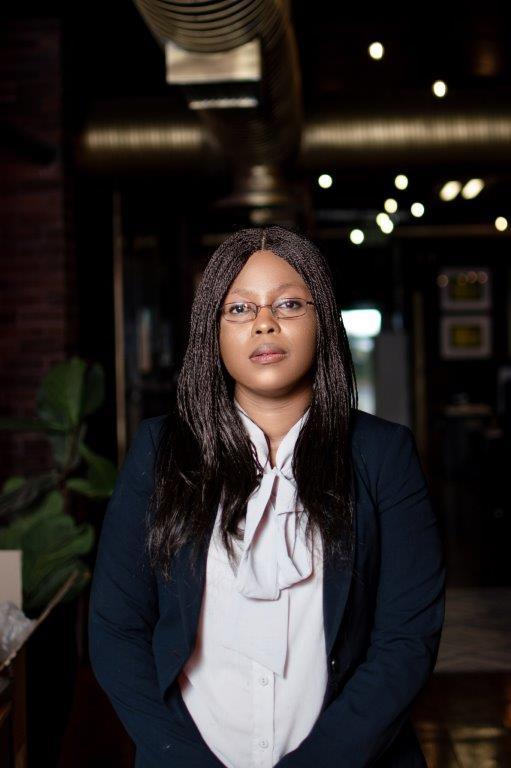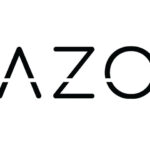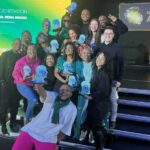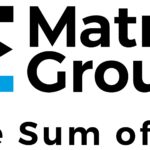By Ima Peter, Business Unit Director and Head of Corporate at Razor PR
The trend of ‘unofficial collaboration’ not only connects brands with people, with authenticity, but has opened up new revenue streams (and risks) for businesses that make this connection with popular culture. Here’s why you need to take note of this evolving trend.
It has become common for PR professionals to refer to what we do as “changing” or “so much more than just PR”. There are just too many proof points to name: content (and rich content), the blend of earned and paid, and this year alone, Artificial Intelligence (AI). So, while it’s true, what it really talks to is the only constant communicators can rely on – and that is change.
Setting new paces with change, Africa’s brands and people have been part of building the momentum behind an increasingly dominant trend called unofficial collaboration. But what matters now, is that this has implications for strategic communications and the brands and companies they represent across our continent.
The questions is why, and what is unofficial collaboration?
Broadly speaking, an unofficial collaboration refers to an informal partnership between two or more brands (or their leaders) that work together to achieve a common goal, without any formal agreement. It’s the ‘ultimate handshake deal’, and takes various forms, such as the basics of co-creating content, cross-promotion of ideas, or the joint product launches.
At its most powerful is the impact of like-minded voices behind issues that matter and have systemic societal and economic impact. And critically, what matters for agencies, is that it is the singular most powerful tool they have in their arsenals – the ability to connect people, voices and events together to create greater earned impact and real, powerful conversations.
Take a winning bow officially
The always evolving landscape of marketing and advertising has played a significant role in the popularity of such collaborations, as consumers continue to become more sceptical of traditional advertising methods and are more likely to engage with brands that offer authentic experiences.
Most notably, brands born on our continent and committed to being true to how they represent being African, can powerfully leverage unique brand partnerships to reach new audiences. Consider the effect delivered by Nigerian fashion brand, Maki Oh as it partnered with American luxury fashion brand, Pyer Moss, to create a limited edition capsule collection tailored to a more youthful audience.
Then there was the centre stage move of South African singer, Mthandazo Gatya, who participated in the John Legend #OpenVerseChallenge on TikTok. His talented and leading step up resulted in him sharing the stage with musician John Legend during his South Africa Tour.
On the global stage, these collaborations are often created by small groups of content creators who find something unique and symbiotic in two businesses. And they can take many forms, such fan fiction, artwork to unofficial merchandise to entire productions. A standout example is the ‘Unofficial Bridgerton Musical’ by Barlow and Bear which scooped best musical theatre album at the 2022 Grammy Awards and was the first Grammy winner to be developed on TikTok.
The Netflix inspired musical album started as a TikTok trend in 2021, with creators writing and performing original songs inspired by the series. In trending, it quickly gained steam, with more and more creators contributing their own songs and performances. Eventually, a group of creators decided to take things a step further and turn the collection of songs into a fully-fledged musical, which they performed on a virtual stage.
Despite being sued by Netflix in July 2022, which was later settled in September, this unofficial collaboration creative concept was refreshing for a flagging consumer world as the pandemic drew on and on.
In particular, the rapid success of the Unofficial Bridgerton Musical highlights the potential for brands to harness the power of informal collaborations. As while the musical was created without the involvement or endorsement of Netflix or the Bridgerton creators, it still managed to generate significant buzz and attract a dedicated following – albeit they ended up being sued.
But the winning strategy here was the boldness in how collaborators offered a novel brand experience space in which they tapped into the creativity and passion of their fans – and built deeper connections with their communities. This approach could certainly lead to increased brand loyalty, as well as deliver valuable insights and feedback.
Balancing brand risk and results
For African brands, values such as sustainability and ethical practices are exceptionally important to consumers.
On this front, it is worth pausing for a creative cuppa with South African tea company, Yswara. The brand collaborated with Soko, the Kenyan luxury brand to create a limited edition tea set. This allowed both brands to convey their shared values of sustainability and ethical sourcing in an elegant and true-to-brand move.
However, businesses must approach unofficial collaboration with caution. Without a formal agreement, it can be challenging to manage expectations and ensure that both parties are meeting their objectives. Additionally, there is the risk of diluting each brand’s identity and message if the collaboration is not executed properly.
Brands also need to be careful not to infringe on any intellectual property rights, and should always ensure that any collaborations align with their brand values and messaging. Importantly too, brands should be prepared to handle any potential backlash or negative attention that may arise from supporting or promoting unofficial collaborations.
But despite these notes of caution, the rise of the unofficial collaboration presents a compelling opportunity for brands to engage with audiences in new and exciting ways. By embracing the passion of their fans, companies can create meaningful connections that can help drive success in the long run.
Indeed, it is a lesson companies and CEOs can learn from successful brand collaborations. It is about unlocking the power of like-mindedness and true commitment to drive impact on key issues and causes that matter beyond just the needs of the organisation itself. Issues such as regulatory overreach, investments in communities and policy all are bigger than the self. It’s unlikely that just the “self” can solve them alone.
By leveraging each other’s strengths and values, African companies can create relevant business experiences when both parties’ objectives are aligned around the desired results. Even more so, as businesses navigate how to merge entertainment and education as underlying brand experiences, we can expect to see many more of our brands choosing the path of the unofficial collaboration.
It is this that will unlock the future value of agency client partnerships. The connecting of the dots in unexpected and strategic ways to create measurable impact from the work we do. This is the future of the most powerful conversations we can help our clients have, starting right now.
- Automation and AI: Super-Tools to level up your business - 24th July 2024
- Salesforce Launches First Autonomous AI Agent - 19th July 2024
- WPP champions inclusive creativity at inaugural Unite South Africa Awards during Pride Month - 19th July 2024





